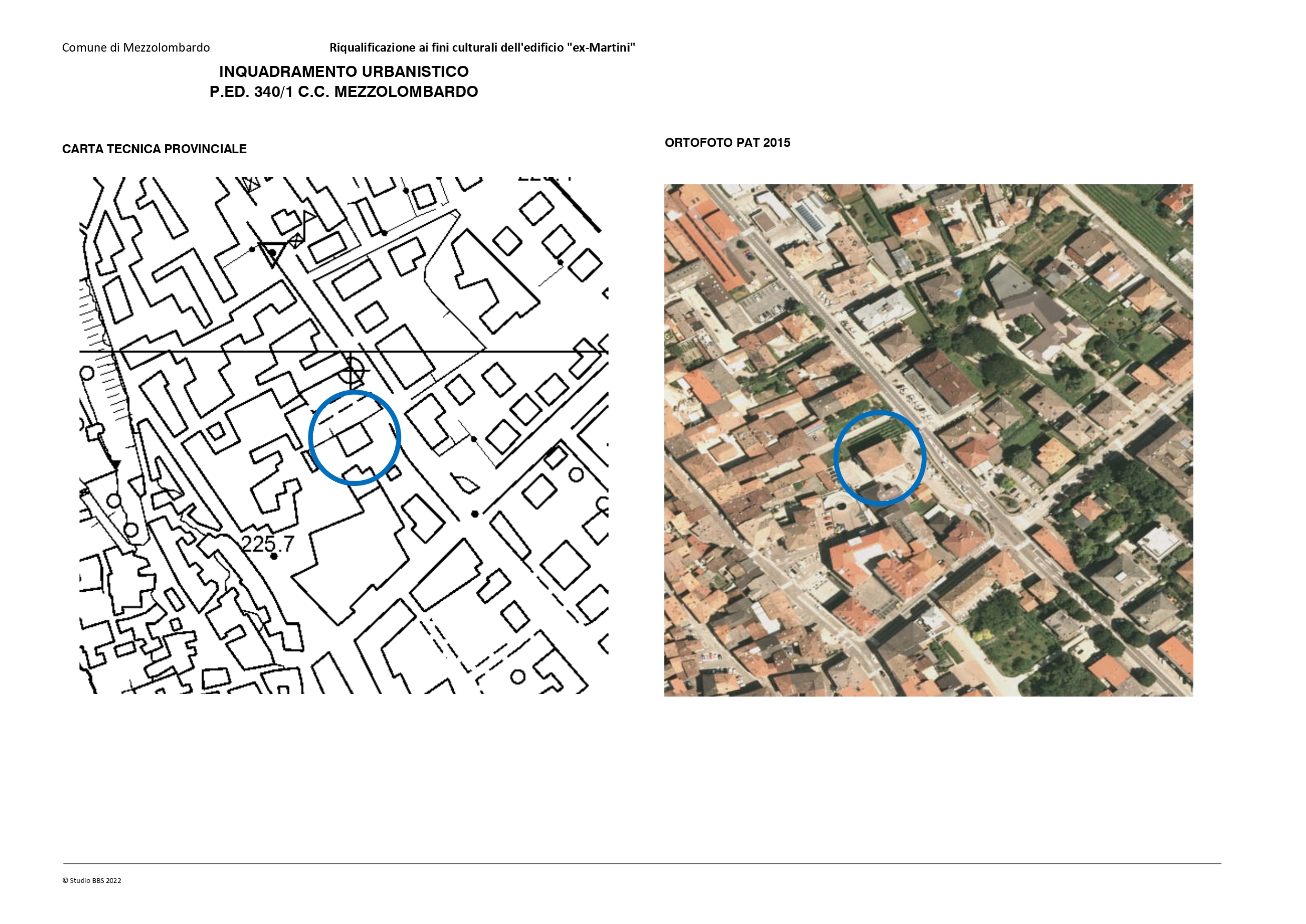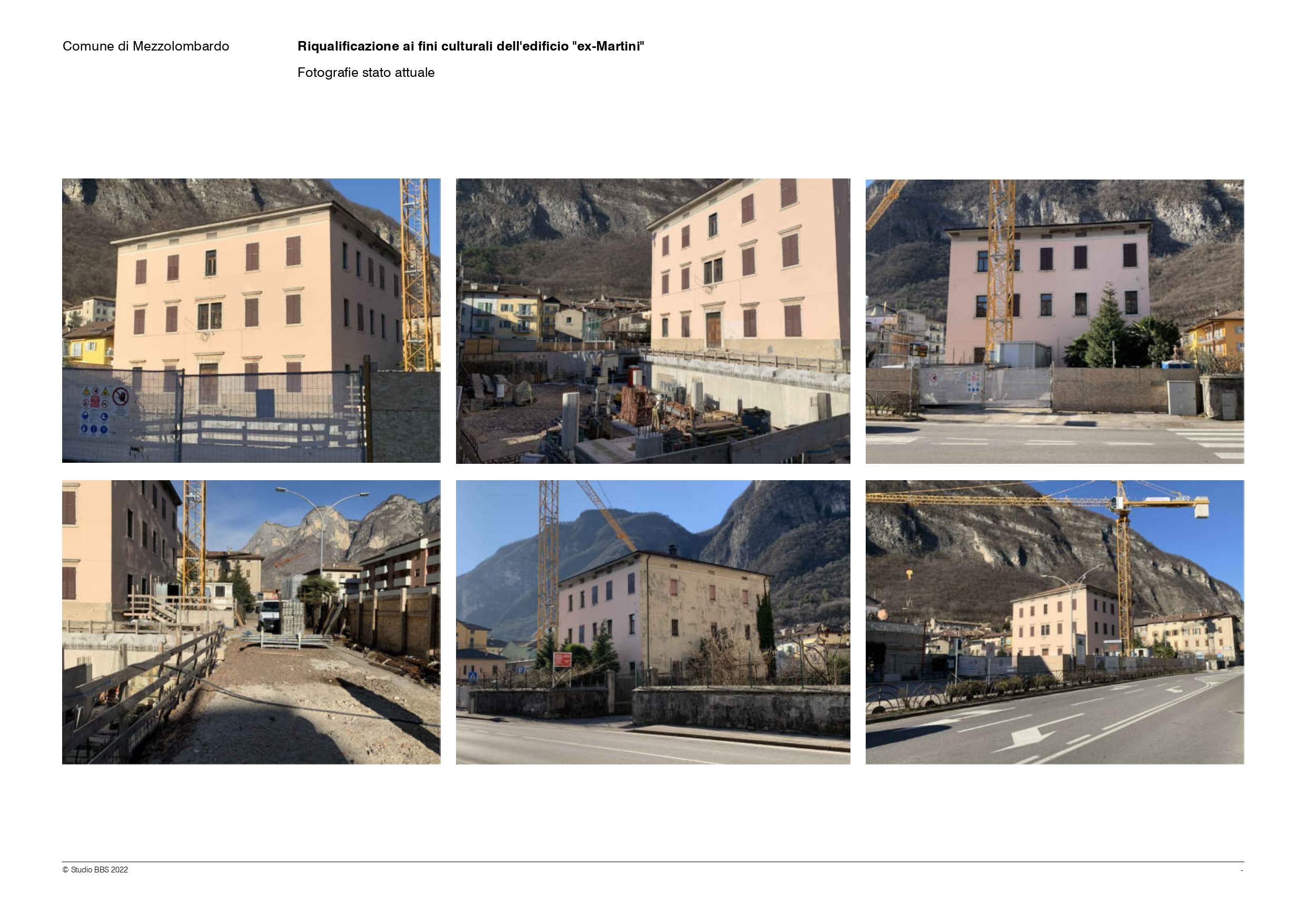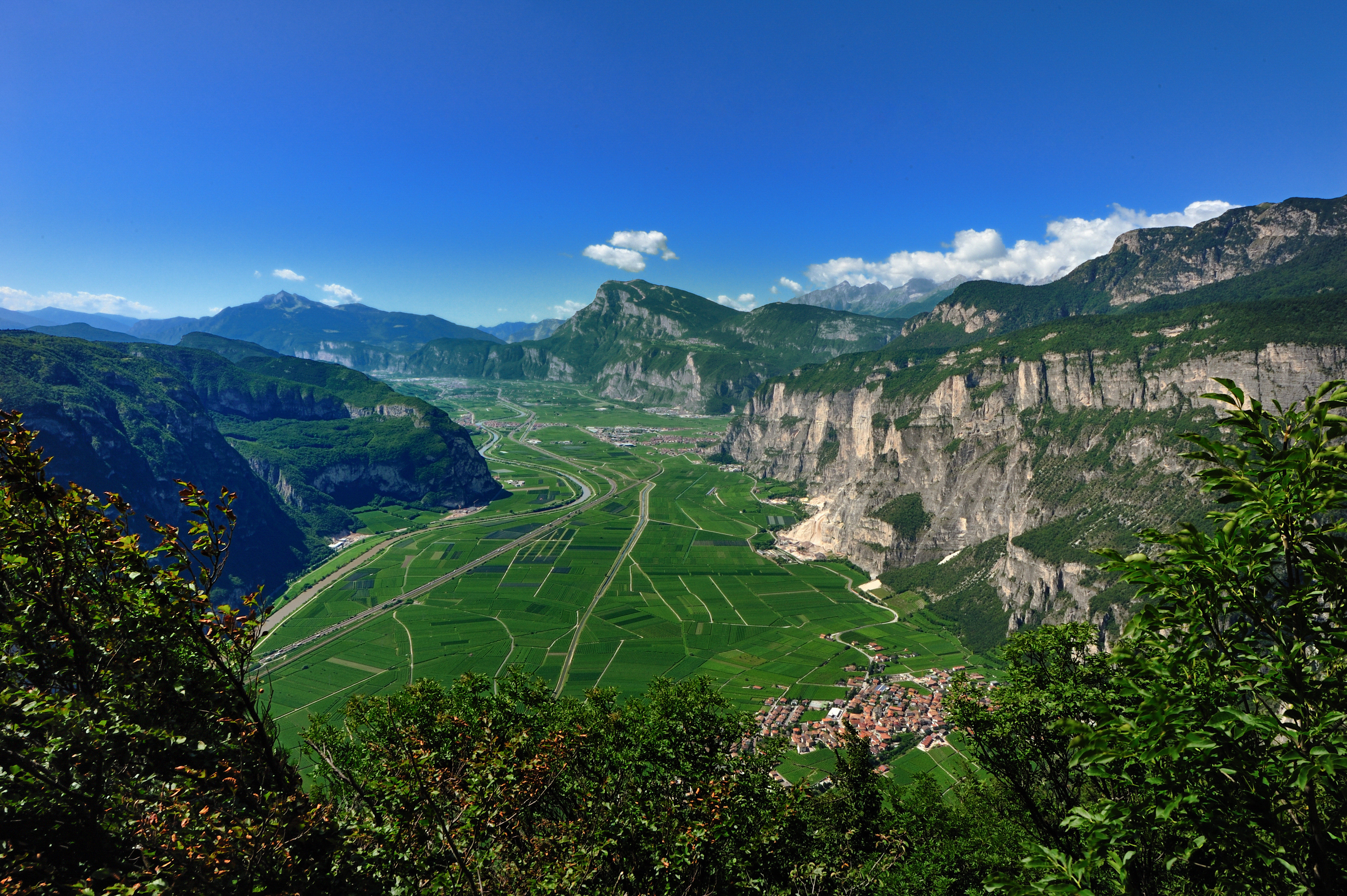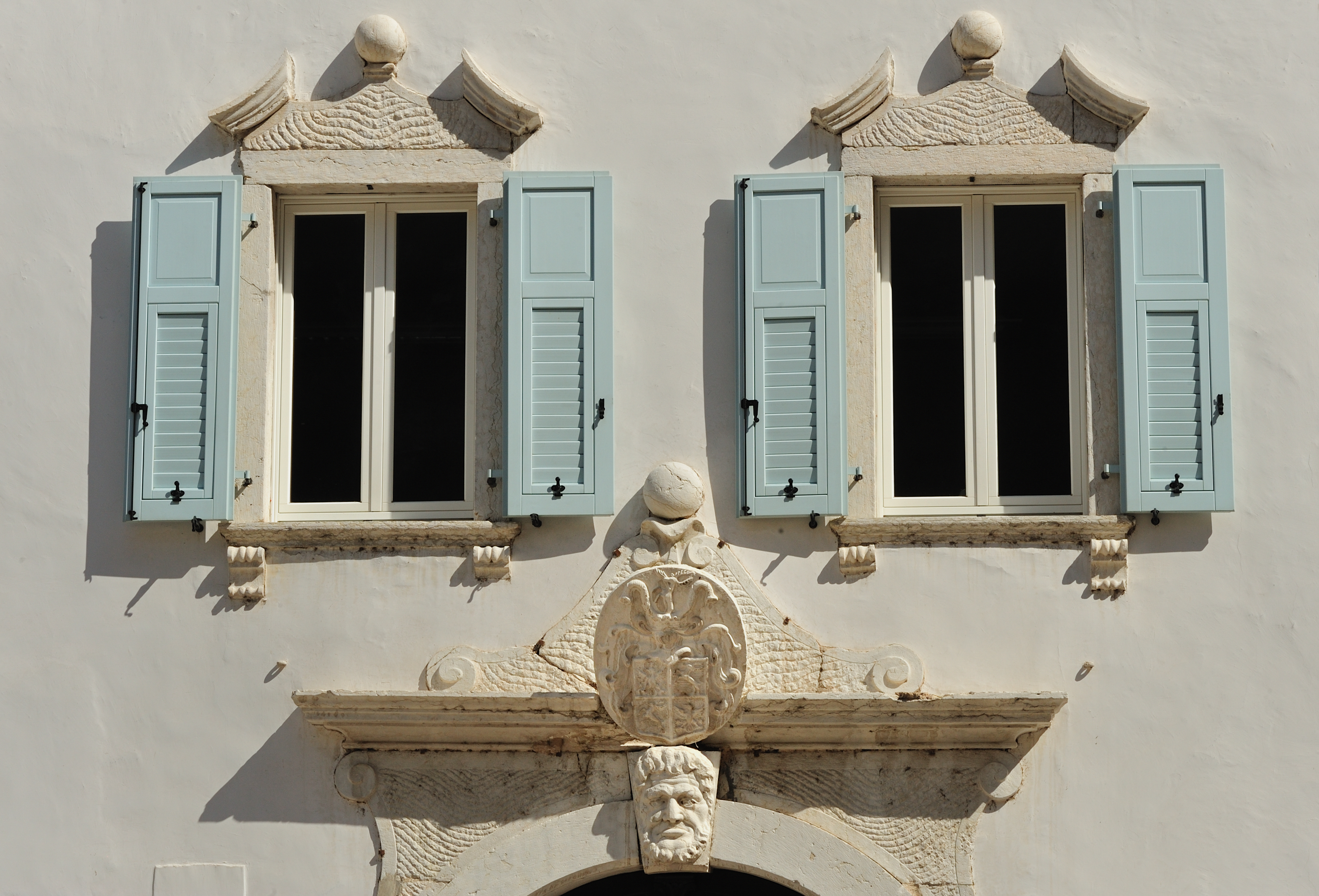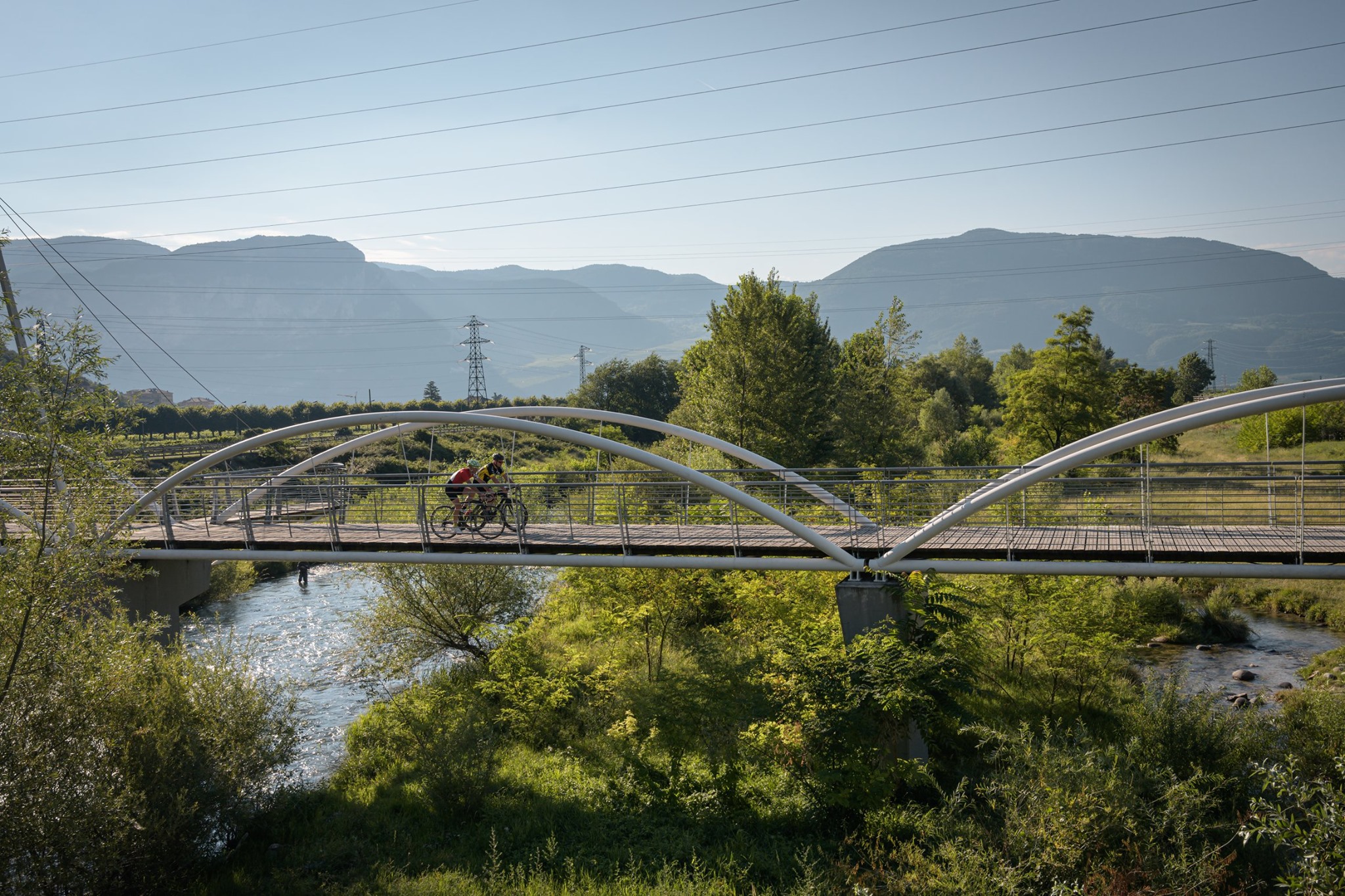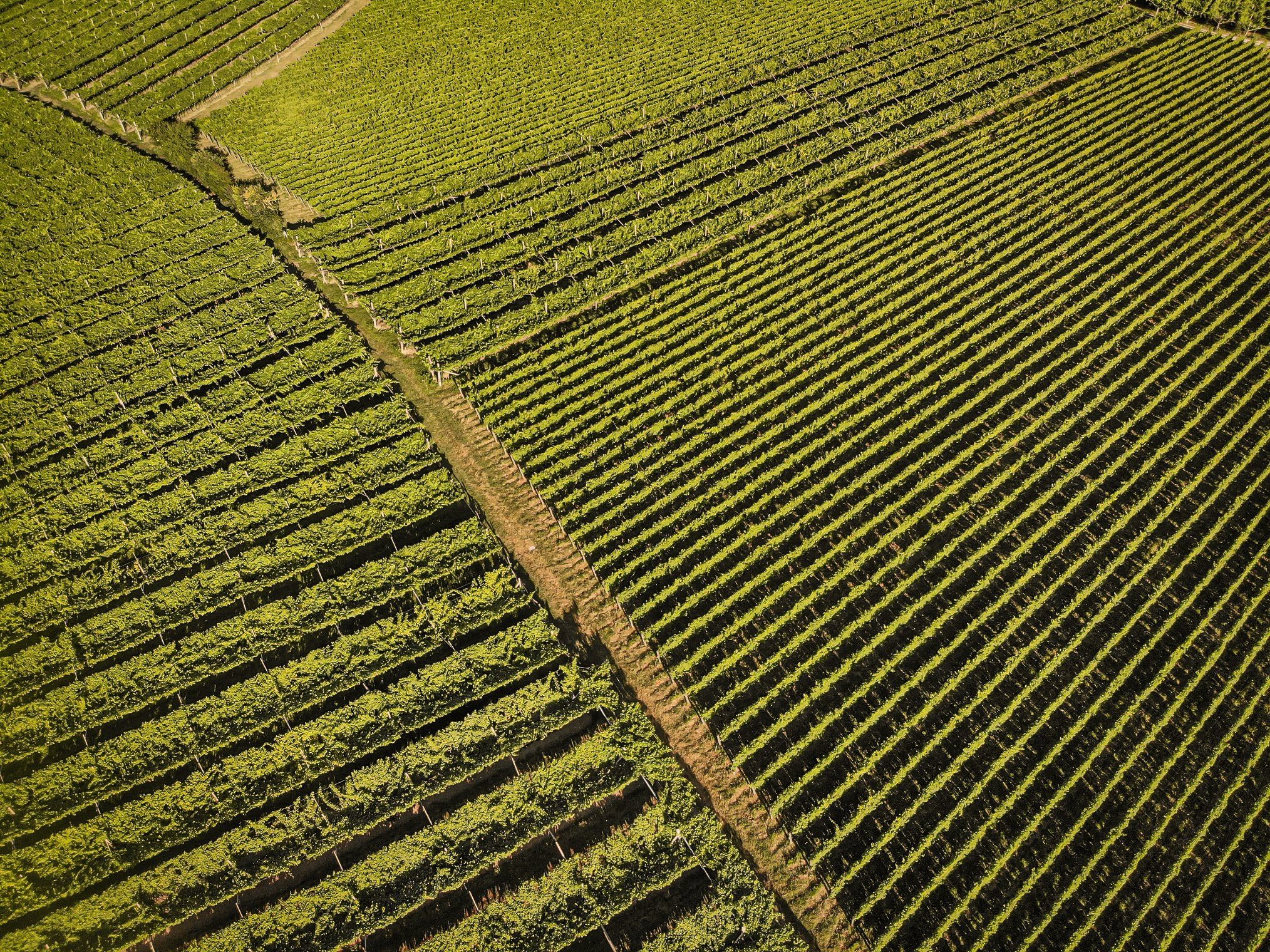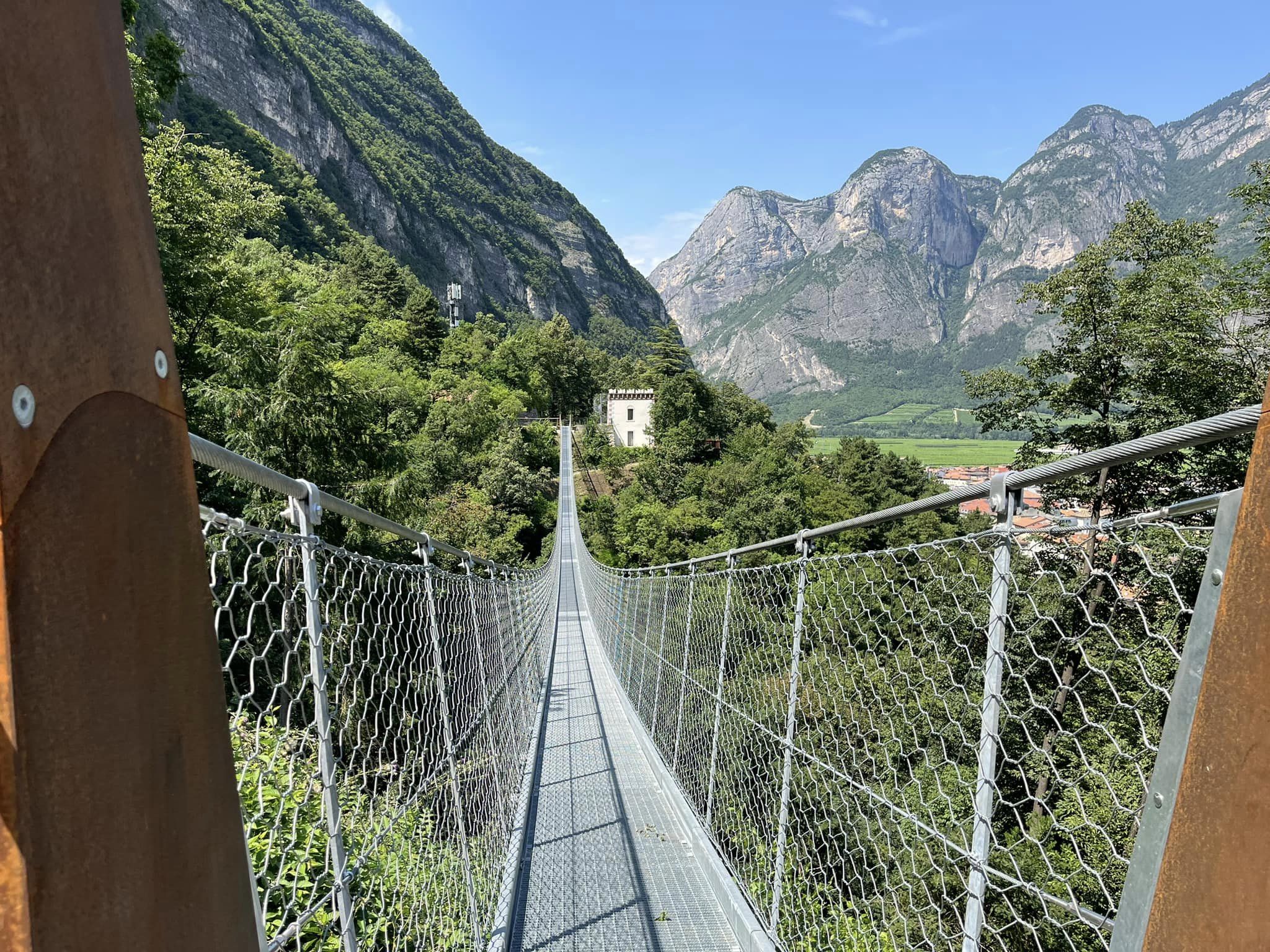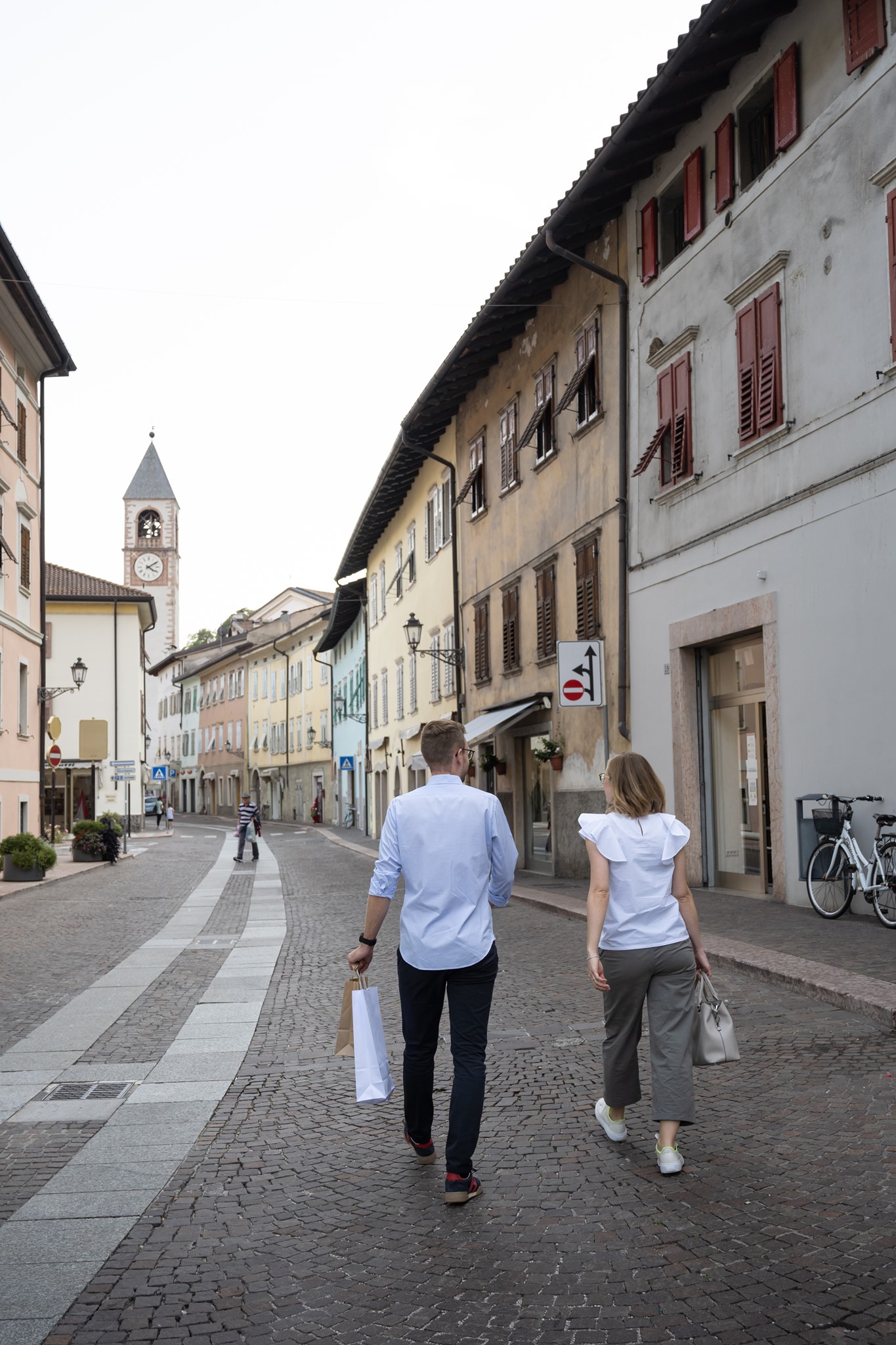Between Mountains and Vineyards
RiKreative L-hub. An hub for common living and community engagement in the Wine Garden of Europe
The “RiKreative L-Hub” PROJECT (RKLH) aims to rehabilitate the former Captain Office (XIX c.), now abandoned along with its associated public space. The re-functionalization was initiated by the municipality in agreement with partners. The goal is to transform the building into a project incubator (HUB) for associations and community. The acronym stands for Recreate with Creativity the R(otaliana) K(önigsberg) territory as a Laboratory for Learning and Living in a social Hub.
Italy
Piazza Vittoria, 38017 Mezzolombardo (TN)
Prototype level
Yes
Yes
Yes
No
No
022117: Mezzolombardo (IT)
The RKLH is developed in the Rotaliana Königsberg (RK) wine-cultivating area (Trentino, IT), which is characterised by a rooted rural identity. The mountain landscape and local culture represent key elements for the community. The initiative aligns with national policies for regenerating abandoned or underused architectural heritage in marginal territories by integrating environmentally sustainable practices and promoting social revitalisation.
Following the values of the NEB, the RKLH combines the local dimension with national and global policies, fostering strategies and actions functional to sustainably recovering and rehabilitating existing heritage buildings and public spaces based on circularity, energy neutrality and inclusiveness. The conservation and renewal project aligns with the needs of citizens and stakeholders. This specific project is part of a broader territorial regeneration initiative, “THE WINE GARDEN” (WG), which encompasses the entire RK. It started at the end of 2021, was led by the local Tourism Board (RKTB), and has been enriched by collaboration with various multidisciplinary scientific partners. It results from a bottom-up territorial development process initiated within multiple communities through a participatory and transdisciplinary approach. The WG’s objectives include fostering a shared reflection on landscape’ protection and enhancement with a strong focus on sustainable development that ensures a balanced use of tangible and intangible local resources. The WG also facilitates creating a network of relationships, promoting synergy between different local actors. The goal is to enhance the WG concept, establishing it as an innovative regeneration and valorisation model that addresses contemporary challenges and inspires new initiatives. Within this framework, the RKL is an incubator of ideas and projects where the community can recognize itself and actively contribute to the development of the territory.
Following the values of the NEB, the RKLH combines the local dimension with national and global policies, fostering strategies and actions functional to sustainably recovering and rehabilitating existing heritage buildings and public spaces based on circularity, energy neutrality and inclusiveness. The conservation and renewal project aligns with the needs of citizens and stakeholders. This specific project is part of a broader territorial regeneration initiative, “THE WINE GARDEN” (WG), which encompasses the entire RK. It started at the end of 2021, was led by the local Tourism Board (RKTB), and has been enriched by collaboration with various multidisciplinary scientific partners. It results from a bottom-up territorial development process initiated within multiple communities through a participatory and transdisciplinary approach. The WG’s objectives include fostering a shared reflection on landscape’ protection and enhancement with a strong focus on sustainable development that ensures a balanced use of tangible and intangible local resources. The WG also facilitates creating a network of relationships, promoting synergy between different local actors. The goal is to enhance the WG concept, establishing it as an innovative regeneration and valorisation model that addresses contemporary challenges and inspires new initiatives. Within this framework, the RKL is an incubator of ideas and projects where the community can recognize itself and actively contribute to the development of the territory.
1/ Wine Garden
2/ Common living
3/ Social engagement
4/ Co-design
5/Tactical urbanism
The RKLH involves redeveloping the abandoned former Captain Office in Mezzolombardo (TN), which dates back to the XIX c. This initiative represents a strategic intervention aligned with the principles of environmental sustainability, cultural enhancement, and social development.
The building is part of the historical tissue of the town and overlooks the SP35 road connecting Trento and Non-Valley. Over the years, it has undergone several transformations, serving as an administrative headquarters during the Austro-Hungarian period and later as a school until 2018. Today, the building stands abandoned, and its adjacent square has become a fragment of vacant land wedged between the road and parking areas. Reintegrating the building and its public space within the urban tissue through its repurposing, becomes a symbol of safeguarding architectural heritage but also counters the disconnection between the community and its legacy.
The RKLH is rooted in the RK’s historical identity. The building symbolises a reconnection between architectural heritage, the rural landscape, and the local community. Its repurposing does not merely rescue a historic structure from neglect but seeks to restore it to a dynamic and meaningful role. It will be transformed into a territorial HUB adaptable to the evolving needs of events and activities.
Another fundamental objective is minimising environmental impact, aligning with European and national sustainability goals. Following a circular approach, the redevelopment adopts energy-efficient design solutions, ensuring the reuse of existing structures as much as possible. The project prioritises a conservative restoration strategy, integrating innovative technologies and sustainable materials to optimise energy performance. The Life Cycle Assessment (LCA) approach will guide all current and future project phases, promoting responsible use of resources and establishing a low- urban impact and territorial regeneration model.
The building is part of the historical tissue of the town and overlooks the SP35 road connecting Trento and Non-Valley. Over the years, it has undergone several transformations, serving as an administrative headquarters during the Austro-Hungarian period and later as a school until 2018. Today, the building stands abandoned, and its adjacent square has become a fragment of vacant land wedged between the road and parking areas. Reintegrating the building and its public space within the urban tissue through its repurposing, becomes a symbol of safeguarding architectural heritage but also counters the disconnection between the community and its legacy.
The RKLH is rooted in the RK’s historical identity. The building symbolises a reconnection between architectural heritage, the rural landscape, and the local community. Its repurposing does not merely rescue a historic structure from neglect but seeks to restore it to a dynamic and meaningful role. It will be transformed into a territorial HUB adaptable to the evolving needs of events and activities.
Another fundamental objective is minimising environmental impact, aligning with European and national sustainability goals. Following a circular approach, the redevelopment adopts energy-efficient design solutions, ensuring the reuse of existing structures as much as possible. The project prioritises a conservative restoration strategy, integrating innovative technologies and sustainable materials to optimise energy performance. The Life Cycle Assessment (LCA) approach will guide all current and future project phases, promoting responsible use of resources and establishing a low- urban impact and territorial regeneration model.
The RKLH is part of the broader territorial initiative “WG”, which aims to enhance the beauty of the entire RK area from a landscape perspective and in cultural and social terms. One of the seven areas of intervention within the WG is focused on “aesthetics”: historically defined by a substantial agricultural identity, the territory has, over the past 40 years, experienced a decline in vineyard surface areas and increasing conflict with urban and industrial development, which has not always maintained a balance with the landscape. While historic centres are subject to heritage regulations, there is also a need to establish a functional enhancement that improves local communities’ quality of life.
The former Captain Office has long been symbolic, serving both an administrative function during the Austro-Hungarian period and later as a school attended by generations of students. Since 2018, however, the building has deteriorated rapidly, putting an essential element of the community’s collective memory at risk. For this reason, the Mezzolombardo Municipality has decided to invest in its regeneration by defining a new function capable of interweaving past and future, tradition and innovation.
Its transformation aims to recover the area’s architectural aesthetic quality according to the principles of ‘care’ and strengthen the emotional connection between the community and its heritage through a participatory and inclusive design approach.
The RKLH responds with regional guidelines and aspires to be an experiential, educational, and relational space. It will be an "agora" of shared planning, with common spaces, co-working spaces, and association headquarters, fostering new forms of sociality and collaboration.
The regeneration of this place is not only an infrastructural investment but also an opportunity to regenerate cultural and social values, capable of consolidating identity and working for the beauty of the territory.
The former Captain Office has long been symbolic, serving both an administrative function during the Austro-Hungarian period and later as a school attended by generations of students. Since 2018, however, the building has deteriorated rapidly, putting an essential element of the community’s collective memory at risk. For this reason, the Mezzolombardo Municipality has decided to invest in its regeneration by defining a new function capable of interweaving past and future, tradition and innovation.
Its transformation aims to recover the area’s architectural aesthetic quality according to the principles of ‘care’ and strengthen the emotional connection between the community and its heritage through a participatory and inclusive design approach.
The RKLH responds with regional guidelines and aspires to be an experiential, educational, and relational space. It will be an "agora" of shared planning, with common spaces, co-working spaces, and association headquarters, fostering new forms of sociality and collaboration.
The regeneration of this place is not only an infrastructural investment but also an opportunity to regenerate cultural and social values, capable of consolidating identity and working for the beauty of the territory.
The RKLH is designed as an inclusive and accessible space that rethinks the role of public spaces in a rural and semi-urban context.
Conceived as a cultural and social hub, it promotes stakeholder interaction, fostering intergenerational exchange and engagement among several interest groups (citizens, associations, businesses, tourists, ...). The project actively works to contrast social isolation and bridge the gap between local identity and visitors’ temporary experiential perspective based on inclusive governance and supporting affordability (e.g., for co-working spaces). The aim is to approach a sustainable community model, reinforcing the idea of cultural democracy.
Moreover, the space will be designed according to the principles of “design for all”, removing physical and cognitive barriers to create a welcoming environment for individuals of all abilities and age groups. Additionally, the project’sparticipatory governance is a key pillar of inclusivity, whereby the space evolves in response to the community's actual needs, a renovated model of traditional ‘collective properties’, (memory of the ancient Trentino community rules). The regional Agency for Social Cohesion and Trentino Open Project supports the spatial co-creation process, improving the project's long-term sustainability.
The open space will serve as a co-creation experiment, applying the principles of tactical urbanism to transform underutilized areas into welcoming, sustainable, and safe public spaces. This flexible and dynamic setting will accommodate temporary installations and community events. This adaptive approach ensures that the space can respond to changing needs, promoting a sense of belonging and active participation.
By integrating sustainability, inclusion, and community engagement, the RKLH aspires to become a model of social innovation, demonstrating how vacant cultural heritage can be harnessed to create new inclusive social models.
Conceived as a cultural and social hub, it promotes stakeholder interaction, fostering intergenerational exchange and engagement among several interest groups (citizens, associations, businesses, tourists, ...). The project actively works to contrast social isolation and bridge the gap between local identity and visitors’ temporary experiential perspective based on inclusive governance and supporting affordability (e.g., for co-working spaces). The aim is to approach a sustainable community model, reinforcing the idea of cultural democracy.
Moreover, the space will be designed according to the principles of “design for all”, removing physical and cognitive barriers to create a welcoming environment for individuals of all abilities and age groups. Additionally, the project’sparticipatory governance is a key pillar of inclusivity, whereby the space evolves in response to the community's actual needs, a renovated model of traditional ‘collective properties’, (memory of the ancient Trentino community rules). The regional Agency for Social Cohesion and Trentino Open Project supports the spatial co-creation process, improving the project's long-term sustainability.
The open space will serve as a co-creation experiment, applying the principles of tactical urbanism to transform underutilized areas into welcoming, sustainable, and safe public spaces. This flexible and dynamic setting will accommodate temporary installations and community events. This adaptive approach ensures that the space can respond to changing needs, promoting a sense of belonging and active participation.
By integrating sustainability, inclusion, and community engagement, the RKLH aspires to become a model of social innovation, demonstrating how vacant cultural heritage can be harnessed to create new inclusive social models.
The WG is the result of a co-design process with the community, which began in 2021/2022 with the ‘WG’ development pathway. It actively involved the RK population, intending to define their territorial identity and a shared vision of sustainable development for the future.
Through group meetings, collective workshops, and targeted projects, 7 distinctive elements characterizing the territory have been identified: the aesthetics of the wine landscape (1), the orographic conformation between the plain and mountains (2), the strategic position between Italian and German culture (3), the wine craftworks (4) the agricultural production (5), the cultural and research hubs (6) the strong roots in the cooperation and sustainability values (7).
The RK community (6 municipalities; 30,000 inhabitants) has formally joined the WG by signing a collective pledge: “Cultivate and care the Wine Garden for us, our guests and future generations, as source of life and well-being” (05/06/2023 https://www.youtube.com/watch?v=Y_dbTeD1i2g&t=481s).
A key aspect of WG is its scientific and experimental approach, thanks to the collaboration with academic and research partners. The Institute of Brand Logic played a crucial role in facilitating participatory workshops, while the FEM contributed to the creation of the manual “PRK a COLORI” (see file: F). The Politecnico di Milano (DAStU) launched educational initiatives and research activities, exploring innovative urban and social regeneration solutions.
The RKLH, as part of this wide-ranging participatory process (WG), becomes a symbolic and functional reference point for the ongoing process. The objective is to create a physical place in which to synthesize connections between the components of social tissue, enhancing tangible (landscape, culture, local production) and intangible (traditions, knowledge, quality of life) resources, creating relationships (with shared projects and activities) and strengthening its identity.
Through group meetings, collective workshops, and targeted projects, 7 distinctive elements characterizing the territory have been identified: the aesthetics of the wine landscape (1), the orographic conformation between the plain and mountains (2), the strategic position between Italian and German culture (3), the wine craftworks (4) the agricultural production (5), the cultural and research hubs (6) the strong roots in the cooperation and sustainability values (7).
The RK community (6 municipalities; 30,000 inhabitants) has formally joined the WG by signing a collective pledge: “Cultivate and care the Wine Garden for us, our guests and future generations, as source of life and well-being” (05/06/2023 https://www.youtube.com/watch?v=Y_dbTeD1i2g&t=481s).
A key aspect of WG is its scientific and experimental approach, thanks to the collaboration with academic and research partners. The Institute of Brand Logic played a crucial role in facilitating participatory workshops, while the FEM contributed to the creation of the manual “PRK a COLORI” (see file: F). The Politecnico di Milano (DAStU) launched educational initiatives and research activities, exploring innovative urban and social regeneration solutions.
The RKLH, as part of this wide-ranging participatory process (WG), becomes a symbolic and functional reference point for the ongoing process. The objective is to create a physical place in which to synthesize connections between the components of social tissue, enhancing tangible (landscape, culture, local production) and intangible (traditions, knowledge, quality of life) resources, creating relationships (with shared projects and activities) and strengthening its identity.
The WG has involved, since its shared design phase and now during the implementation stages, municipalities (6), associations, as well as schools (Istituto Agrario di San Michele all’Adige), universities, cultural entities (Museo Etnografico Trentino San Michele), and research institutions (Fondazione Edmund Mach), in addition to economic operators and farmers (see file: F). Strategic collaboration with the Administration of the Autonomous Province of Trento (PAT), particularly with the Tourism, Agriculture, and Cultural Departments, has been essential.
Some of the projects have collaborated with national research institutions, such as the Politecnico di Milano ("PRK a COLORI" project) and the University of Bologna (“Rotatorie RK” project), focused on the regeneration of the built environment, the preservation of cultural landscapes, infrastructures, and botanical aspects (see file: G2).
There is also a strong international collaboration with Burgundy (France). The cultural and wine-related ties between the RK (the Mezzolombardo municipality as the leading municipality) and the Maranges region (the Sampigny-Les-Maranges municipality) have led to the agreement of a “Friendship Pact” between the two municipalities. It aims to carry out joint actions in key sectors of development such as culture, wine production, education, and tourism, as well as in any other field that may later be deemed suitable for regional development. The challenge is to share best practices and the keys to success, using tools for sustainable development and territorial enhancement.
Regarding Burgundy, the collaboration extends also to the Association des Climats du Vignoble de Bourgogne and the UNESCO Chair “Culture and Traditions of Wine” in Dijon. It focuses on projects enhancing the wine heritage, emphasising cultural values.
Some of the projects have collaborated with national research institutions, such as the Politecnico di Milano ("PRK a COLORI" project) and the University of Bologna (“Rotatorie RK” project), focused on the regeneration of the built environment, the preservation of cultural landscapes, infrastructures, and botanical aspects (see file: G2).
There is also a strong international collaboration with Burgundy (France). The cultural and wine-related ties between the RK (the Mezzolombardo municipality as the leading municipality) and the Maranges region (the Sampigny-Les-Maranges municipality) have led to the agreement of a “Friendship Pact” between the two municipalities. It aims to carry out joint actions in key sectors of development such as culture, wine production, education, and tourism, as well as in any other field that may later be deemed suitable for regional development. The challenge is to share best practices and the keys to success, using tools for sustainable development and territorial enhancement.
Regarding Burgundy, the collaboration extends also to the Association des Climats du Vignoble de Bourgogne and the UNESCO Chair “Culture and Traditions of Wine” in Dijon. It focuses on projects enhancing the wine heritage, emphasising cultural values.
The regeneration of the rural and mountain territory of the RK required a multidisciplinary and integrated approach as a best practice to address the complex challenges of planning and the sustainable management of resources in line with the objectives of economic and cultural development. For this reason, administrations, institutions, research organizations, schools at various levels, universities, associations, financial operators, and professionals have all been involved. The objective was to identify an innovative, inclusive, sustainable, and replicable model of territorial valorization based on cooperation, sharing of expertise, and public-private collaboration in favour of social cohesion.
The four key sectors in the approach to the project are:
1. Agronomy (with a particular focus on the cultivation of vines, apples, and white asparagus) is overseen through the involvement of the Istituto Agrario di San Michele all’Adige and the Fondazione Edmund Mach (see file: G2).
2. The Museo Etnografico Trentino San Michele (see file G2) 's expertise supports the recovery of historical memory and cultural and ethnographic palimpsests, which explores the connection between the community and its territory.
3. The historical analysis aims to understand the transformations of the landscape and trigger processes for caring for the built space (among which is the recovery of the former Captain Office) and the cultural and infrastructural landscape involving the Politecnico di Milano (DAStU), the University of Bologna (DISTAL), architects, town planners, and designers.
4. The professionals of the Institute of Brand Logic (a spin-off from Innsbruck University) have guided the construction of a shared and strategic vision. The Institute of Brand Logic has acted as a facilitator among the various stakeholders involved. Interaction with stakeholders has enabled the creation of a project that goes beyond individual sector interests.
The four key sectors in the approach to the project are:
1. Agronomy (with a particular focus on the cultivation of vines, apples, and white asparagus) is overseen through the involvement of the Istituto Agrario di San Michele all’Adige and the Fondazione Edmund Mach (see file: G2).
2. The Museo Etnografico Trentino San Michele (see file G2) 's expertise supports the recovery of historical memory and cultural and ethnographic palimpsests, which explores the connection between the community and its territory.
3. The historical analysis aims to understand the transformations of the landscape and trigger processes for caring for the built space (among which is the recovery of the former Captain Office) and the cultural and infrastructural landscape involving the Politecnico di Milano (DAStU), the University of Bologna (DISTAL), architects, town planners, and designers.
4. The professionals of the Institute of Brand Logic (a spin-off from Innsbruck University) have guided the construction of a shared and strategic vision. The Institute of Brand Logic has acted as a facilitator among the various stakeholders involved. Interaction with stakeholders has enabled the creation of a project that goes beyond individual sector interests.
The RKLH is envisioned as a true "Experience Point": a fluid and dynamic space capable of adapting to various needs, an incubator for ideas, and an ephemeral place for events. The project concept seeks to overturn places' traditional static nature by transforming an abandoned historic building into a kinetic space where the community actively participates in territorial regeneration and shapes the space according to necessities.
Innovation also lies in the interaction between disciplines (architecture, history, agronomy), which have transcended sectoral boundaries to achieve a common purpose: architecture rethinks the built space through a sustainable approach, connecting it to its natural and cultural context and creating an urban and landscape fabric that enhances territorial peculiarities; historical studies recover and reactivate the identity-based heritage of the territory to ensure continuity with the future; agronomy supports, even historically the agricultural and wine vocation to create RK, fostering excellence in production and resilience.
Through the participation of mixed communities, it has been possible to generate new, diverse, yet shared visions for the territory. The proposed model draws inspiration from scientific research in co-design, tactical urbanism, and territorial coaching, demonstrating how creating physical spaces that act as innovation hubs can strengthen social cohesion and territorial resilience. Successful experiences, such as the European maker spaces, have shown that the transformation of underused urban spaces and the interaction between stakeholders of different generations, ethnicities and genders leads to the development of creativity with a more lasting impact on the social and economic fabric.
In this sense, our project WG and RKLH represent replicable best practices in which collaboration between the public and private sectors, combined with a multidisciplinary approach, is the key to redefining the future of territories.
Innovation also lies in the interaction between disciplines (architecture, history, agronomy), which have transcended sectoral boundaries to achieve a common purpose: architecture rethinks the built space through a sustainable approach, connecting it to its natural and cultural context and creating an urban and landscape fabric that enhances territorial peculiarities; historical studies recover and reactivate the identity-based heritage of the territory to ensure continuity with the future; agronomy supports, even historically the agricultural and wine vocation to create RK, fostering excellence in production and resilience.
Through the participation of mixed communities, it has been possible to generate new, diverse, yet shared visions for the territory. The proposed model draws inspiration from scientific research in co-design, tactical urbanism, and territorial coaching, demonstrating how creating physical spaces that act as innovation hubs can strengthen social cohesion and territorial resilience. Successful experiences, such as the European maker spaces, have shown that the transformation of underused urban spaces and the interaction between stakeholders of different generations, ethnicities and genders leads to the development of creativity with a more lasting impact on the social and economic fabric.
In this sense, our project WG and RKLH represent replicable best practices in which collaboration between the public and private sectors, combined with a multidisciplinary approach, is the key to redefining the future of territories.
The analysis of successful models and past challenges, conducted based on the workshops and group discussion results, was shared and thoroughly examined by over 100 participants. This process contributed to shaping a common understanding of the initial situation and identifying the required strategic and visionary changes (see file: A). The WG was designed to synthesize the ideas and proposals of the various participants, who were organized into mixed groups (by economic sector and origin) and presented their concepts in the form of collage. A subsequent discussion among participants highlighted these proposals’ most interesting and relevant aspects. The proposed ideas were checked and compared with current trends in similar areas and refined to reach the final version of the WG.
Subsequently, a smaller group of representatives from the six municipalities and the various economic sectors was selected to identify the areas of intervention—spanning product development, organizational structure, and cultural initiatives—on which to work to ground the vision and detail the objectives to be achieved. Specific measures were then defined to attain the identified goals, focusing on priority areas.
One of the key outcomes was the establishment of a new governance framework, formalized by the PRK municipalities through a Protocol of Understanding (2023), which sets out their commitment to supporting and implementing (for projects within their remit) the WG (see file: G3). The RKLH project is one of these projects and declares that it will pursue constant remodelling in line with co-participation input.
Subsequently, a smaller group of representatives from the six municipalities and the various economic sectors was selected to identify the areas of intervention—spanning product development, organizational structure, and cultural initiatives—on which to work to ground the vision and detail the objectives to be achieved. Specific measures were then defined to attain the identified goals, focusing on priority areas.
One of the key outcomes was the establishment of a new governance framework, formalized by the PRK municipalities through a Protocol of Understanding (2023), which sets out their commitment to supporting and implementing (for projects within their remit) the WG (see file: G3). The RKLH project is one of these projects and declares that it will pursue constant remodelling in line with co-participation input.
The WG project holds significant potential for transferability and replication due to its flexible and comprehensive methodology. Firstly, the territorial coaching methodology can be applied across different contexts and timeframes, allowing a time monitoring of changes. Through these inquiries, bottom-up spatial regeneration, facilitated by co-design, fosters shared creative spaces and “agora” of ideas, where public space becomes a fundamental setting for community life. The tactical urbanism approach also makes it possible to work quickly and in a ‘light’ manner on spaces, not by imposing definitive solutions but by developing people’s capacity for self-determination and innovation and conceiving public space as a collective heritage.
The RKLH is a pilot project implemented in one of the RK municipalities, intended to serve as a flywheel for similar experiences in other contexts.
The methodology adopted is based on the application of territorial coaching, a rigorous and constant practice that stimulates the local human and organizational potential. It actively involves citizens, institutions, companies, and associations to strengthen the territory’s identity and awareness of its opportunities and challenges.
Within this framework, the overall WG project stands as a best practice for the RK region and a transferable and adaptable model for other rural areas that require an integrated, inclusive, and resilient approach to enhance their cultural, environmental, and economic heritage. For this reason, the partnership with other similar regions (Burgundy, Etna, Rioja), reinforced by a biennial festival called “Incontri Rotaliani”, is not only aimed at consolidating relations in the winemaking sector but also at sharing experiences and learning from similar territories.
The RKLH is a pilot project implemented in one of the RK municipalities, intended to serve as a flywheel for similar experiences in other contexts.
The methodology adopted is based on the application of territorial coaching, a rigorous and constant practice that stimulates the local human and organizational potential. It actively involves citizens, institutions, companies, and associations to strengthen the territory’s identity and awareness of its opportunities and challenges.
Within this framework, the overall WG project stands as a best practice for the RK region and a transferable and adaptable model for other rural areas that require an integrated, inclusive, and resilient approach to enhance their cultural, environmental, and economic heritage. For this reason, the partnership with other similar regions (Burgundy, Etna, Rioja), reinforced by a biennial festival called “Incontri Rotaliani”, is not only aimed at consolidating relations in the winemaking sector but also at sharing experiences and learning from similar territories.
The increasing complexity of contemporary spatial dynamics highlights global challenges such as environmental degradation, social fragmentation, loss of biodiversity and erosion of cultural traditions. The WG addresses these challenges through an integrated local solution that turns the territory into a living laboratory of participatory and sustainable design. The holistic approach is based on a systemic vision of the landscape, understood not as a fragmented set of infrastructures but as a system integrating physical, symbolic and relational aspects. Thanks to innovative methodologies - such as territory coaching, tactical urbanism and co-design - the project stimulates communities to become active protagonists, equipping them with the necessary tools to interpret, imagine and realise transformations that combine innovation and tradition.
Moreover, the project goes beyond aesthetic enhancement, proposing a revision of monocultural production logic and rethinking agriculture as a design practice capable of transforming and preserving the territory. Collaborating with research bodies and experimental centres like the Politecnico di Milano and the Fondazione E. Mach supports the development of integrated strategies that combine ecological, cultural, and economic aspects, favouring the interaction between public and private.
Ultimately, WG effectively responds to global challenges, helping create resilient and sustainable territories. Through the active involvement of communities and a systemic vision, the project enhances local knowledge and promotes a model of landscape regeneration capable of ensuring harmonious, inclusive growth that can cope with the dynamics of the present.
Moreover, the project goes beyond aesthetic enhancement, proposing a revision of monocultural production logic and rethinking agriculture as a design practice capable of transforming and preserving the territory. Collaborating with research bodies and experimental centres like the Politecnico di Milano and the Fondazione E. Mach supports the development of integrated strategies that combine ecological, cultural, and economic aspects, favouring the interaction between public and private.
Ultimately, WG effectively responds to global challenges, helping create resilient and sustainable territories. Through the active involvement of communities and a systemic vision, the project enhances local knowledge and promotes a model of landscape regeneration capable of ensuring harmonious, inclusive growth that can cope with the dynamics of the present.
The WG aims to realise projects planned for the coming years (up to 2027). The master plan, developed through a participatory process started in 2022, will be implemented. At the same time, efforts are being driven to disseminate and implement the project at local, national, and international levels. The project was presented to the population (5 June 2023) and was included as a Satellite Event during the NEB Festival 2024. Due to its high relevance to the NEB themes, it was also selected, together with five other projects, to be showcased during the opening ceremony of the New Bauhaus Festival (https://voda.akamaized.net/europa/20240409/ - at minute1:03:00).
The next steps involve continuous community engagement to assess and implement the projects according to changing needs. To achieve this, an analysis phase will be essential to evaluate the initial results in terms of effectiveness and actual impact on the PRK community at a socio-cultural as well as economic level.
The Municipality of Mezzolombardo will assign the design contract of the former Captain Office to transform it into the ‘RKLH.
At the same time, in collaboration with the Politecnico di Milano (DAStU), the local population, schools, and artists and performers will be involved in defining the key elements for setting up the interior spaces, including the experiential info point, co-working areas, and spaces dedicated to associations.
Using tactical urbanism, the open spaces around the building will be designed and developed to reconnect it with the urban tissue of the historic centre, turning it into a new gathering place accessible to the entire community. This initiative will integrate with the broader plan to make the town centre car-free.
The next steps involve continuous community engagement to assess and implement the projects according to changing needs. To achieve this, an analysis phase will be essential to evaluate the initial results in terms of effectiveness and actual impact on the PRK community at a socio-cultural as well as economic level.
The Municipality of Mezzolombardo will assign the design contract of the former Captain Office to transform it into the ‘RKLH.
At the same time, in collaboration with the Politecnico di Milano (DAStU), the local population, schools, and artists and performers will be involved in defining the key elements for setting up the interior spaces, including the experiential info point, co-working areas, and spaces dedicated to associations.
Using tactical urbanism, the open spaces around the building will be designed and developed to reconnect it with the urban tissue of the historic centre, turning it into a new gathering place accessible to the entire community. This initiative will integrate with the broader plan to make the town centre car-free.

